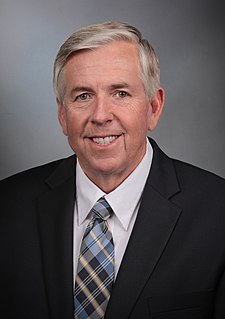A Quote by Tate Reeves
We can't have career criminals walking around with no records. The law enforcement community that I spoke with agreed.
Related Quotes
The importance of making sure that the sense of accountability when, in fact, law enforcement is involved in a deadly shooting is something that I think communities across the board are going to need to consider, we have a great opportunity, coming out of some great conflict and tragedy, to really transform how we think about community law enforcement relations so that everybody feels safer and our law enforcement officers feel, rather than being embattled, feel fully supported.
Here in Washington State, I've supported efforts to provide our law enforcement with the proper training and resources required to meet their changing and demanding needs of their job. In doing so, I feel that the community and the law enforcement relationship will gratefully benefit from a renewed sense of responsibility and accountability.
Those of us in law enforcement must redouble our efforts to resist bias and prejudice. We must better understand the people we serve and protect - by trying to know, deep in our gut, what it feels like to be a law-abiding young black man walking on the street and encountering law enforcement. We must understand how that young man may see us.
Most people have no idea what cops really do. They think cops give you a speeding ticket. They don't see the cops associating with professional criminals and making money in the process. They believe that when a guy puts on a uniform, he or she becomes virtuous. But people who go into law enforcement do so for the trill of wielding power over other people, and in this sense, they relate more to the crooks they associate with than the citizens they're supposed to protect and serve. They're looking to bully someone and they're corrupt. That's law enforcement.
To argue that it is unconstitutional for local law enforcement to be a legitimate partner in immigration enforcement is shortsighted. It is evidence of a lack of commitment to securing our borders and a lack of appreciation for the proper role of the states in supporting federal law enforcement priorities.
This killer [in Orlando] was interviewed by the FBI three times and I'm not going to second guess what career law enforcement professionals do everyday to defend our nation. But we need to look carefully at this. Should we have a broader database? You know, someone comes to the attention of FBI not once but three times, does that suggest that local law enforcement needs to know.































